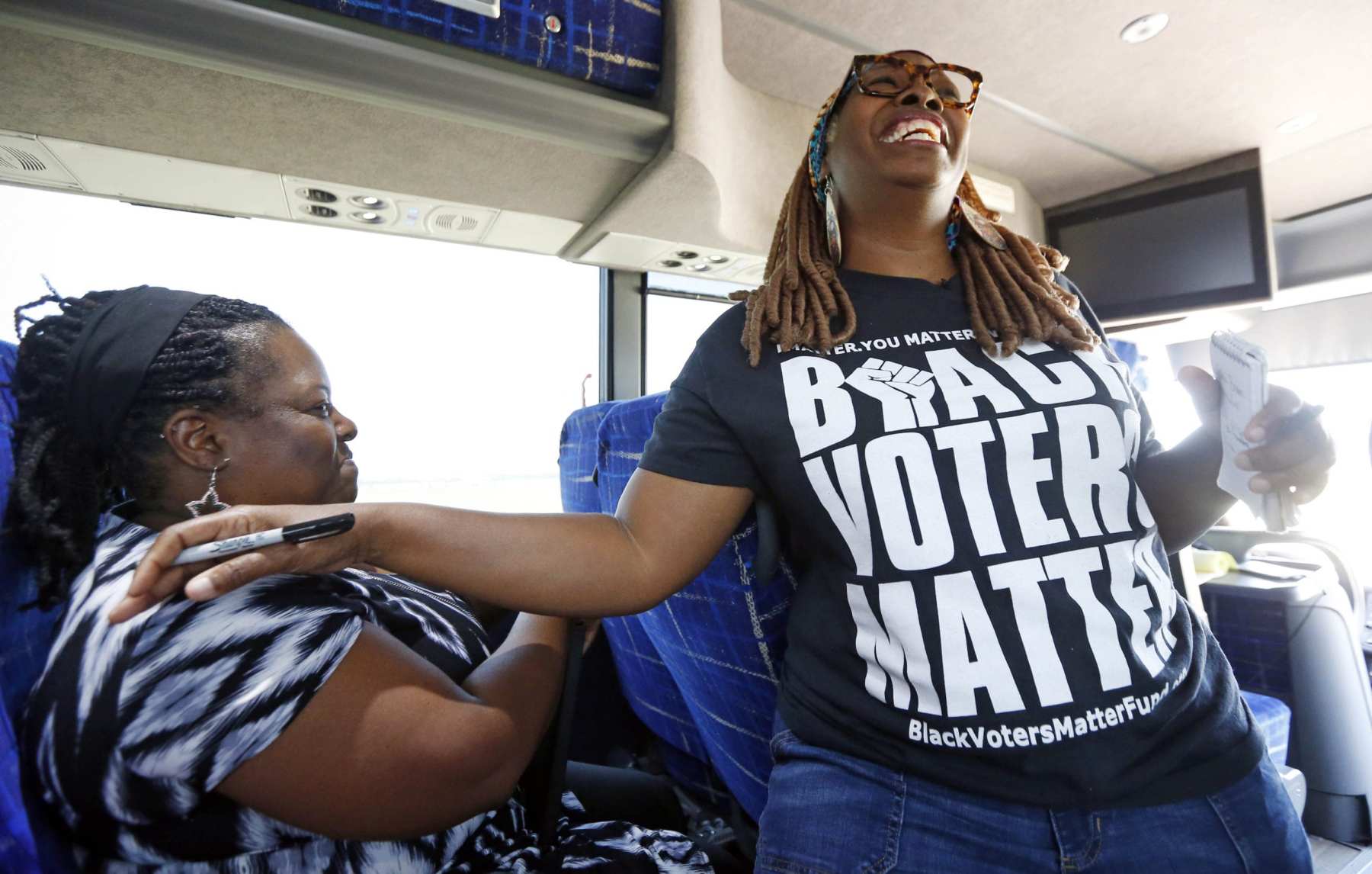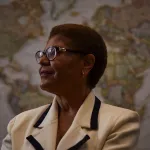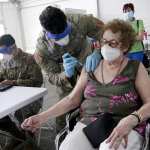This story was co-published with The Washington Post.
As Southern governors are reopening the region this week, Black activists are joining with local and federal lawmakers to sound the alarm about what they see as a looming threat to the Black Belt.
They say the mostly White, male Republicans — who were reluctant to close their states but are now eager to reopen — are effectively issuing a “death sentence” for millions of Black Americans who have been disproportionately impacted both economically and medically by the novel coronavirus.
“He’s willing to risk us at any cost,” said Black Voters Matter co-founder LaTosha Brown of Georgia Gov. Brian Kemp, who announced a reopening of the state beginning last Friday, with plans to officially let the state’s stay-at-home order expire on Thursday.
“It’s clear that he does not give a d— about the citizens of this state and that he feels like some folks are disposable. The first thing that came to my mind was: These people are trying to kill us,” said Brown, an Alabama native who lives in Georgia.
Public health officials have said reopening states to commerce and freer movement comes with risks, particularly without robust testing and contact tracing.
A coalition of mostly Black female activists led by Black Voters Matter, the Southern Rural Black Women’s Initiative, the A. Philip Randolph Institute and the Highlander Research and Education Center launched a petition to the governors of Georgia, Tennessee, Mississippi, Alabama, South Carolina and Florida, pleading with them to extend their stay-at-home orders.
Reopening now “especially for cash-poor communities and communities of color, is irresponsible and a death sentence for many of us,” they wrote.
The groups are also calling on the states to create safety plans for essential workers — who are disproportionately minorities and female — before reopening, to report coronavirus data by race and county, to increase unemployment support and to expand Medicaid.
“Our neighbors, relatives, members of our faith communities and co-workers are being put in an impossible position that prioritizes profit over people,” the petition reads.
Despite being only 13 percent of the U.S. population, African Americans make up 30 percent of the deaths from the pandemic. The crisis is not only one of public health but also of economics, as Black unemployment is historically at least double that of Whites and minorities work the majority of low-wage, front-line jobs and are the least likely to be able to work from home.
Florida, Alabama and Tennessee are also set to lift their stay-at-home orders Thursday. Mississippi began its reopening process Monday. North Carolina’s order was set to expire on April 29 but Democratic Gov. Roy Cooper extended the state’s order until May 8. Louisiana’s Democratic governor, John Bel Edwards, on Monday extended the state’s stay-at-home order from Thursday to May 15.
Trump met with Florida Gov. Ron DeSantis at the White House on Tuesday, where the two discussed their respective responses to the crisis. DeSantis — who was one of the last governors to issue a stay-at-home order — defended his approach as “tailored” and “measured.” DeSantis has not provided details of how he plans to proceed.
Southern states were among the last to issue stay-at-home orders, with most shuttering the first week of April — days after much of the country closed schools, businesses, churches and public spaces.
Nearly 6 in 10 Black Americans live in the South, the largest region in the country and home to half of the 10 most populous states for African Americans: Florida, Texas, Georgia, North Carolina and Virginia. Three of the four cities with the highest percentage of African Americans are southern, including Jackson, Miss., Miami Gardens, Fla., and Birmingham, Ala. — where nearly 80 percent of all residents are Black.
Some Southern governors have continued to stick to their decisions, including Kemp, who clashed with Donald Trump after the president publicly admonished Kemp for opening his state too early.
The overwhelming majority of the country has not been tested for coronavirus, and the South appears to have among the lowest rates in the country. Without widespread testing, Americans — particularly the ones dying most from the disease — lack an accurate picture of the threat, said Camara Jones, an epidemiologist and family physician whose work focuses on the impacts of racism on the nation’s health.
“We’re blinding ourselves to how many infections there are,” Jones said.
Black lawmakers, including much of the Congressional Black Caucus and Black mayors in cities with large Black populations such as Atlanta, Jackson, Miss., Albany, Ga., and New Orleans have also been outspoken about the need for increased testing and economic support.
Among the most vocal has been Atlanta Mayor Keisha Lance Bottoms, who has been active on social media and in interviews about urging residents of the Georgia capital to stay at home. Her stance drew racist backlash last week when Bottoms received an anonymous text calling her the n-word.
“I was not elected mayor to be a coward,” Bottoms told The Washington Post during a virtual event Tuesday. “I do think there’s something larger at play. But the facts are the facts, and the data is the data. It is impacting African American communities at a higher rate, and Atlanta has a very diverse population with many of the underlying conditions we’ve talked about.”
The activists are also working to hold regular community briefings to inform African Americans of the ongoing threat to the pandemic and to issue guidance for how they can protect themselves from the virus and find economic resources to help those unable to work during the crisis.
Their concerns echo Black organizations around the country that have led similar efforts in recent weeks, from Higher Heights, a Black women’s political action group, to Black Entertainment Television and OWN, the cable network run by Oprah Winfrey.
“It’s not that we don’t want to work,” said Ash-Lee Woodard Henderson, executive director of the Highlander Research and Education Center, who expressed concern that workers would be pressured to return to their jobs even if they felt unsafe.
“We’re literally putting people in a position where they have to choose between putting food on their table or putting themselves and their families at risk,” Henderson said.
A native of Tennessee, Henderson said she and her fellow activists will continue to push state governments on their demands, but in the meantime, they will do what they must to protect the vulnerable — many of whom with faces like hers.
“We have to both target these governors and we have to build networks of mutual aid where people are getting the things that they need,” she said. “We can do that and keep our people safe. There is no neutrality on this one.”
Jones agreed.
“As we are struggling to take care of ourselves, we need to continue to hold their feet to the fire,” she said. “We are part of the society, even if we may not have voted for them, we are their charge. We’re trying to save our own lives, but it’s their responsibility, too.”
Recommended for you
From the Collection







